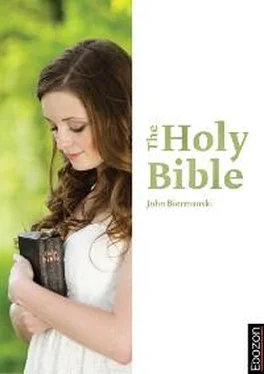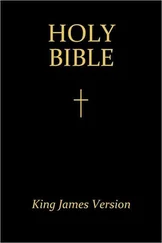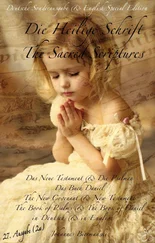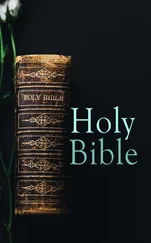from: “The great controversy between Christ and Satan during the Christian dispensation,” by Mrs. E. G. White, Pacific Press Publishing Company, Oakland, Cal., 1888, (see also 1911), pp. 50, 51; editor {...}
"Great is Thy faithfulness," O El my Father,
There his no shadow of turning with Thee;
Thou changest not, Thy compassions, they fail not;
As Thou hast been Thou forever wilt be.
Refrain:
"Great is Thy faithfulness! Great is Thy faithfulness!"
Morning by morning new mercies I see;
All I have needed Thy hand hath provided,
"Great is Thy faithfulness!" YAHWEH to me!
Summer and winter, and springtime and harvest,
Sun, moon, and stars in their courses above,
Join with all nature in manifold witness
To Thy great faithfulness, mercy, and love.
Refrain:
Pardon for sin and (a) peace that endureth,
Thy own dear presence to cheer and to guide;
Strength for today and bright hope for tomorrow,
Blessings all mine, With ten thousand beside!
Refrain:
taken from: Hymns of the Christian Life, 1936. Hope Pub., 1923:
Hymn by Thomas O. Chisholm - William M. Runyan, by per.
Editor has insert the name of our only true God, our El {Elohim} and Father, with his sacred name YAHWEH.
~ ~ ~ ~ ~ ~ ~
Its Origin, History, and Place in the World.
The Bible contains proof in itself of its divine origin. No other book can answer the questionings of the mind or satisfy the longings of the heart as does the Bible. It is adapted to every age and condition of life, and is full of that knowledge which enlightens the mind and sanctifies the soul.
In the Bible we have a revelation of the living God. Received by faith, it has power to transform the life. During all its history a divine watch-care has been over it, and preserved it for the world.
How, When, and Why Written?
After the flood, as men became numerous, and darkness was again settling over the world, holy men wrote as they were moved by the Spirit of God. Thus God spoke to His people, and through them to the world, that a knowledge of God and of His will might not perish from the earth.
For centuries this work went on, until the Messiah, the promised Seed, came. With Him, and the blessed message of light and salvation proclaimed by Him and by His apostles, the Scripture record closed, and the Word of God was complete.
Printing and the Bible.
Printing, however, being yet unknown, copies of the Bible could be produced only by the slow, laborious, and expensive process of handwriting. Tnhis necessarily greatly limited its circulation. Worse still, its illuminating and saving truths were largely hidden for centuries by the errors, superstitions, and apostasy of the dark ages. During this time the common people knew little of its contents.
But with the invention of the art of printing about the middle of the fifteenth century, and with the dawn of the reat Reformation in the century following, the Bible entered upon a new era, preparatory to the final proclamation of the gospel [good tidings] throughout the world.
The Bible in Native Tongues.
Thus far, however, the Bible had been published only in ancient tongues, now little understood by the common people [in Aramaic, {in Greek} and in Latin]. Without the Word of God in their hands, the good seed sown among them was easily destroyed. "O", said the advocates of its pure teachings, "if the people only had the Word of God in their own language, this would not happen! Without this it will be impossible to establish the laity in the truth [But Satan hate the Bible and all reader of the common people: The Bible brings light in Satan's dark and deceitful working method.]."
And why should they not have it in their own tongue? they reasoned. Moses wrote in the language of the people of his time; the prophets spoke in the tongue familiar to the men whom they addressed; and the New Testament was written in the language then current throughout the Roman world.
The translation of the Bible into English by John Wyclif, in 1380, was the chief event in the beginning of the Reformation. It also prepared the way for the revival of Christianity in England, and the multiplying there of the Word by the millions, for all the world, that has followed.
To make such a translation at that time, says Neander, "required a bold spirit which no danger could appal." For making it Wyclif was attacked from various quarters, because, it was claimed, "he was introducing among the multitude a book reserved exclusively for the use of priests." In the general denunciation it was declared that "thus was the gospel [good tidings] by him laid more open to the laity, and to women who could read, than it had formerly been to the most learned of the clergy; and in this way the gospel [the good tidings] pearl is cast abroad, and trodden underfoot of swine." In the preface to his translation, Wyclif exhorted all the people to read the Scriptures.
A sense of awe and a thrill of joy filled the heart of the great German Reformer, when, at the age of twenty, while examining the volumes in the library of the university of Erfurt, he held in his hands, for the first time in his life, a complete copy of the Bible. "O God," he murmured, "could I but have one of these books, I would ask no other treasure." A little later he found in a convent a chained Bible. To this he had constant recourse.
But all these Bibles here, as elsewhere, save in England were in an ancient tongue, and could be read only by the educated. Why, thought Luther, should the living Word be confined to dead languages? Like Wyclif, therefore, he resolved to give his countrymen the Bible in their own tongue. This he did, the New Testament in 1522, and the Bible complete, the crowning work of his life, in 1534.
Impressed with the idea that the people should read the Scriptures in their mother tongue, William Tyndale, likewise, in 1525, gave to the English his translation of the New Testament, and later, of portions of the Old Testament Scriptures. His ardent desire that they should know the Bible was well expressed in the statement that if God spared his life he would cause the boy that drives the plow to know more of the Scriptures than was commonly known by the divines of his day [and also more to our time: the 21st century!].
The first complete printed English Bible was that of Miles Coverdale, printed at Zurich, Switzerland, in 1535. Matthew's Bible, Taverner's Bible, and The Great Bible prepared at the suggestion of Thomas Cromwell, Earl of Essex, appeared soon after. Thus the light of truth began to shine forth once more; but not without opposition.
Burning of Bibles.
As Jehoiakim, king of Judah, and the princes under King Zedekiah showed their contempt for God by burning the writings of Jeremiah, and confining the prophet in a dungeon (Jer. 36:20-23; 38:1-6), so now men sought to stem the rising tide of reform by burning the Bible and its translators.
Bible burning was inaugurated in England by the destruction of copies of the Antwerp edition of Tyndale's New Testament, at St. Paul's Cross, London, in 1527, followed by the burning of a second edition in 1530. A little later there were wholesale burnings of the writings and translations of Wyclif, Tyndale, Basil, Barnes, Coverdale, and others.
Forty-three years after the death of Wyclif, or in A. D. 1428, by order of the Council of Constance his bones were dug up and burned. Oct. 6, 1536, by order of Charles V of Germany, Tyndale was strangled and burned at the stake at Vilvorde, near Brussels. "If Luther will not retract," wrote Henry VIII of England, "let himself and his writings be committed to the flames."
Such, under the spiritual tyranny that ruled in those times, was the fate of many who stood for [the true] God and His [Holy] Word.
Читать дальше












